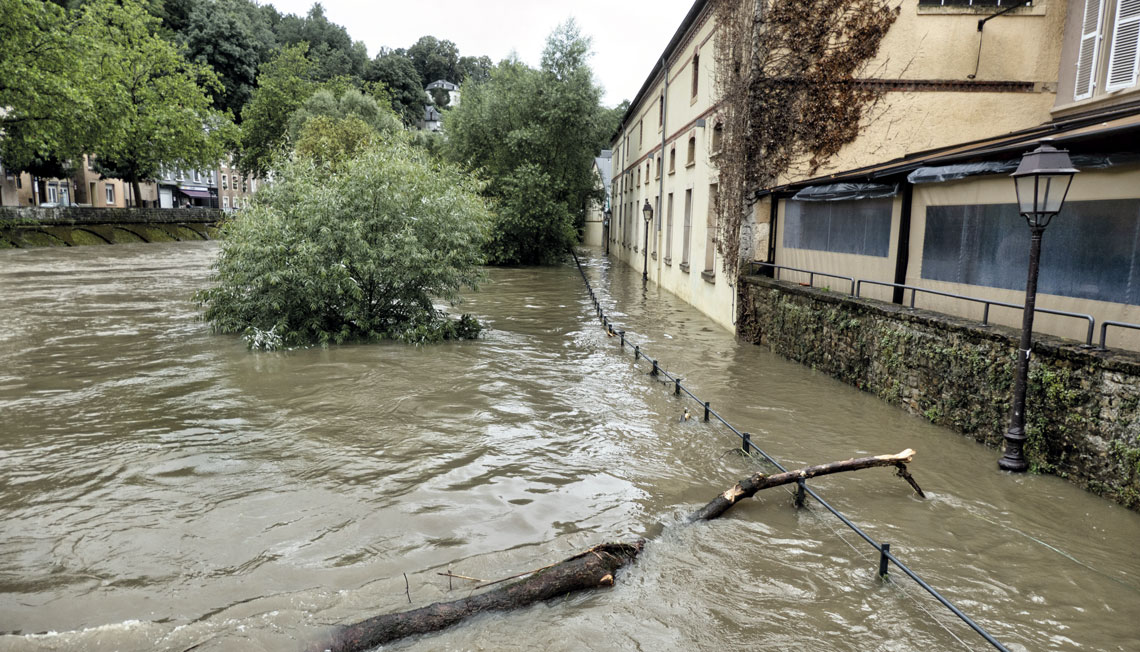
Tristan Schmurr / Wikimedia Commons The Alzette river flooded in Luxembourg City in July 2021Tristan Schmurr / Wikimedia Commons
StopUP, a project involving 11 universities and companies from Belgium, Germany, Italy, Norway, Switzerland, Tunisia, the Netherlands, and the UK, is developing solutions to prevent rainwater from carrying plastics, insecticides, and other organic or chemical pollutants into rivers, lakes, and bays. Started in September 2022 and scheduled to end in August 2025, the project is already achieving results. The German city of Aachen is testing a sand-based filtration system with a gravel drainage layer at the bottom and reeds planted on the top to reduce pollution caused by sewage overflowing into the Wurm River. In Wetteren, Belgium, a group of researchers is evaluating the use of millions of shells collected from the North Sea, which are 70% hollow, to store rainwater that runs off roofs. “It may seem that rainwater is very clean, but when it washes the streets and roofs it becomes loaded with dust, residues of animal feces, microplastics, and other toxic pollutants,” said Luz Herrero, head of the environmental technologies unit at the AIMEN Technology Center in Spain, in an interview with the magazine Horizon. According to the European Environment Agency, 38% of surface water bodies in Europe are affected by some form of pollution (Horizon, October 9; El País, November 13, 2023).
Republish